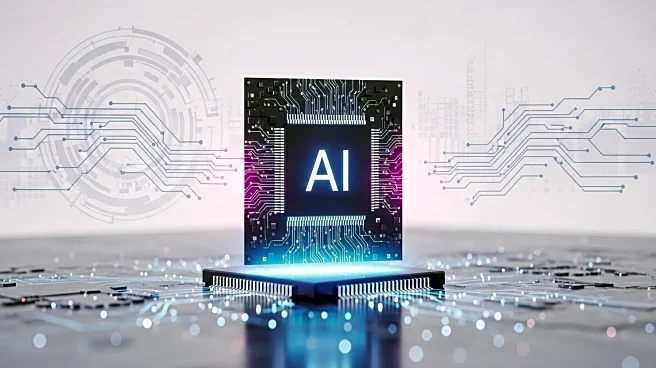What's Happening?
Walmart CEO Doug McMillon has emphasized the transformative impact of artificial intelligence (AI) on the workforce, stating that he cannot think of a single job that will remain unchanged by AI. With Walmart employing 2.1 million people globally, including 1.6 million in the U.S., the company is a significant example of how major employers are adapting to technological advancements. Despite AI automating certain tasks, such as those in warehouses, McMillon assures that this does not necessarily mean job losses. Instead, Walmart plans to maintain its workforce size while evolving job roles. The company is actively involved in initiatives to upskill employees, including a partnership with OpenAI to certify 10 million Americans in AI fluency by 2030.
Why It's Important?
The integration of AI into the workforce is a critical development for the U.S. economy and labor market. As one of the largest private employers, Walmart's approach to AI could set a precedent for other companies. The emphasis on upskilling and maintaining workforce size despite automation highlights a potential model for balancing technological advancement with employment stability. This approach could mitigate fears of widespread job displacement due to AI, offering a pathway for workers to transition into new roles. The collaboration with OpenAI to enhance AI fluency among workers underscores the importance of education and training in adapting to technological changes.
What's Next?
Walmart plans to continue its efforts in workforce adaptation by providing AI training and creating new roles that leverage AI technology. The company's strategy includes tracking job function changes to identify areas where upskilling is needed. As AI continues to evolve, Walmart's approach may influence other corporations to adopt similar strategies, potentially leading to broader industry shifts in workforce management and training. The success of these initiatives could impact public policy discussions on AI and employment, emphasizing the need for educational programs that prepare workers for future job markets.











